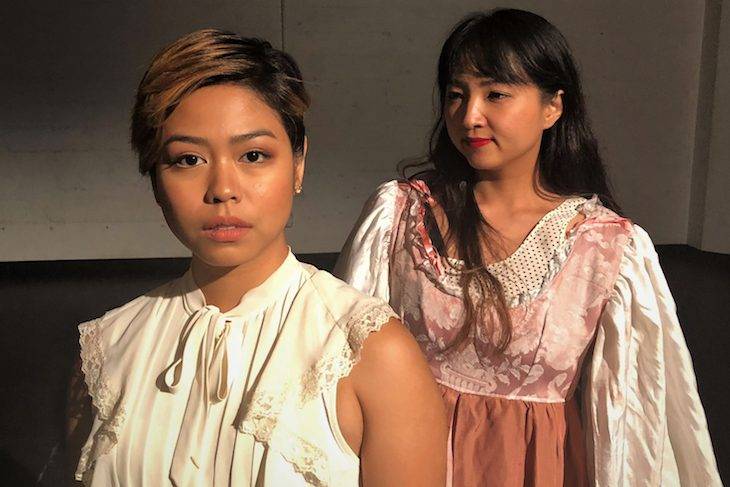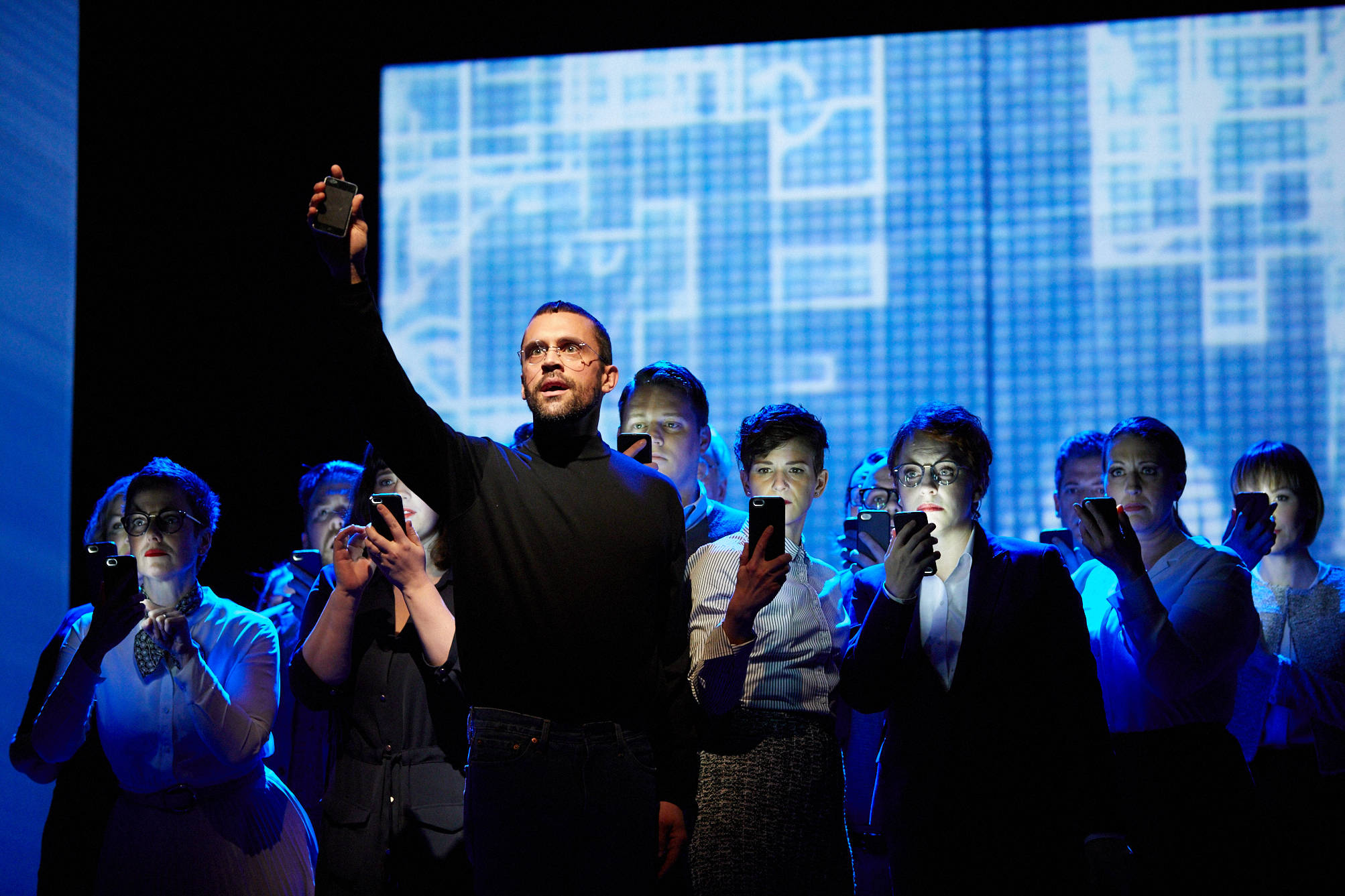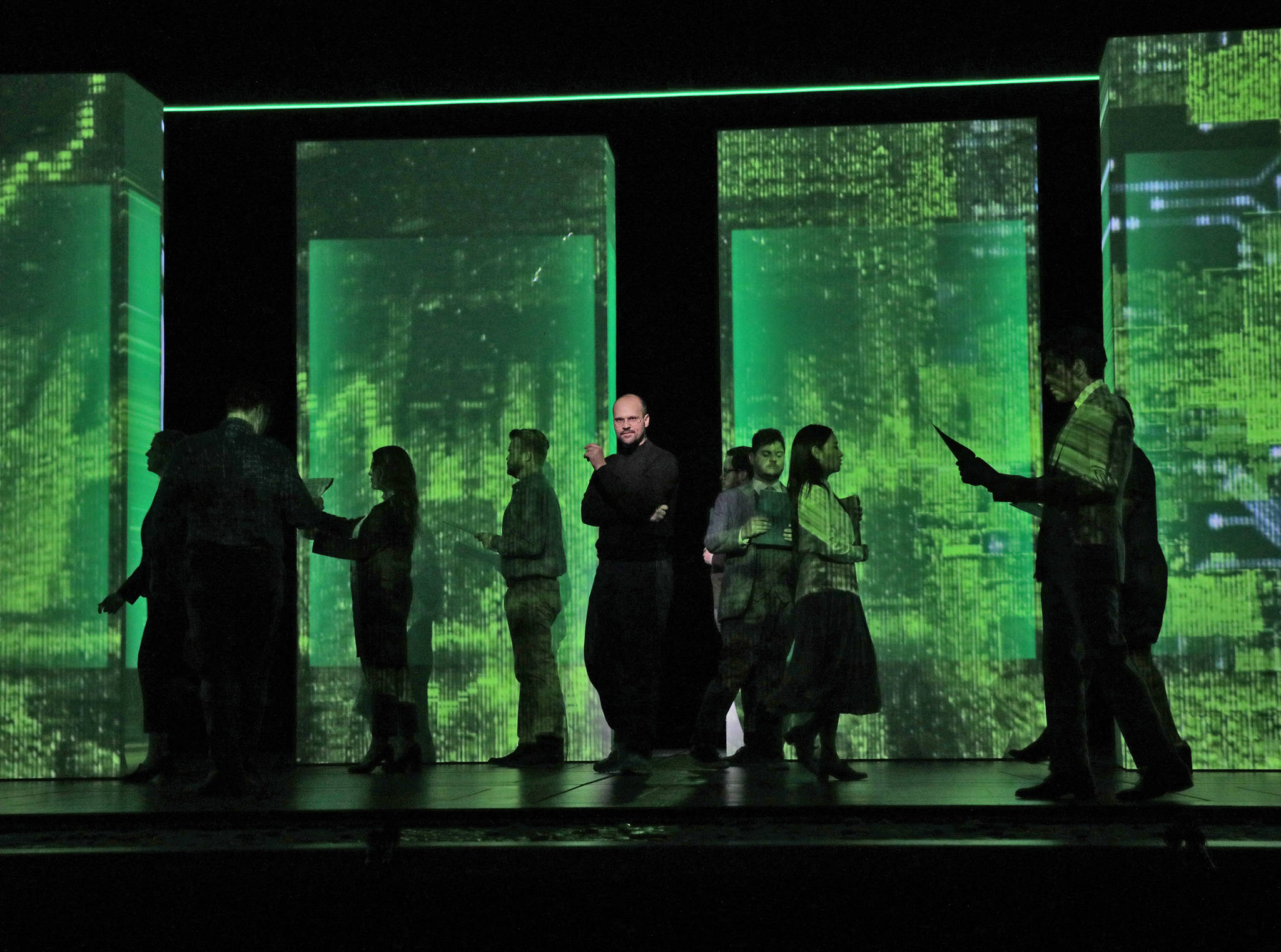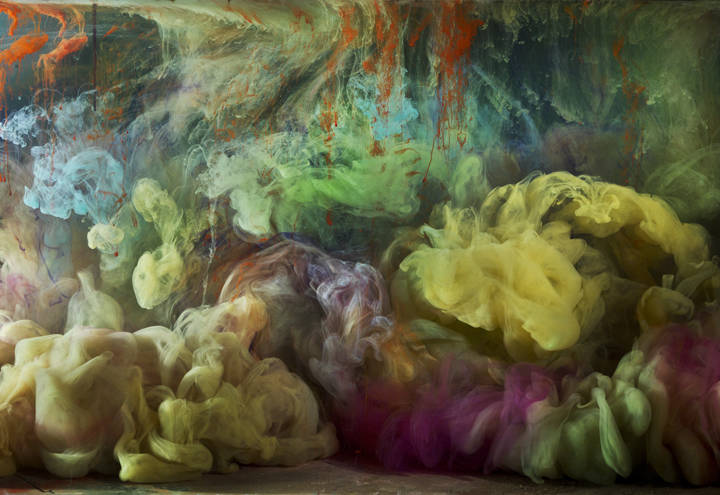The biggest joke in Mozart’s 1787 Don Giovanni is that the title character, the great seducer, never actually gets any. He’s c-blocked at every turn: by Donna Anna, whose failed ravishment launches the plot; by Donna Elvira, who loves him desperately despite herself; and by Zerlina, whom he hits on at her bridal party. His attempts, though, are contemptible enough that he’s become the emblematic operatic villain for our age of heightened sexual-harassment awareness, which spurred The Core Ensemble, in an energetic production which opened Monday, to set the piece in a modern-day workplace. In reimagining the opera, though, they go beyond having the men wear ties and including a laptop among the props; director Julia Holden-Hunkins led an ambitious deconstruction, pulled off effectively for all its intricate stagecraft.
Each role but the Don himself is double-cast: one singer in period costume, one actor in modern dress, and they all freely and elaborately interact. Mozart’s keyboard-accompanied recitative is replaced by spoken dialogue, which the actors deliver in straightforward stage-play mode. During the singing, though, their mime is stylized and dancelike—often breaking into full-on dance. (No choreographer is credited in the program, though Warren Haney is listed as “movement specialist.”) Even with the division of labor, everyone has a lot to do on a small stage (12th Avenue Arts’ three-quarter-round space) and does it nimbly. Tireless pianist Yuly Kopkin, too, is kept busy standing in for the orchestra (on a suboptimal piano, unfortunately).
The score is cut, heavily, to bring the production down to 90 minutes without intermission: all the bonbons, the “Catalog Aria,” the “Champagne Aria,” the Don’s serenade, out. Nearly every solo aria, in fact, is snipped; it becomes an opera of fast-paced trios and quartets, spotlighting the cast as an ensemble and ramping up the blocking challenges. The character of Don Ottavio, though, gets to keep “Dalla sua pace,” his heartfelt pledge of support to his betrothed Anna. The way this aria is staged is one surprise I won’t spoil; it’s one of the oddest and most captivating things I’ve seen in any opera performance.
Predatory and bullying, Jimmi Cook plays the Don with just enough humor and smoothness to give the character more than one dimension. If he’s entirely a villain, then Anna’s entirely a victim and Elvira entirely a masochist—and you have a far less interesting, if more polemical, performance. It’s a baked-in irony in this opera that the worse the Don comes off, the worse the women come off. Monika Elmont provides an arresting take on Elvira: playing her something like a grand classical tragedienne, dignified and imperious in diction and carriage but red-hot in emotionalism, like she’d just dropped in from a 1910 production of Medea.
Don Giovanni, though, still presents roadblocks you can’t swerve around, no matter how woke your intentions. I wish the troupe would have felt less reverent toward the English translation they used, by Chester Kallman and W.H. Auden, which still includes Mozart’s then-contemporary references; the Don, for example, is referred to as a “cavalier” as he plays the class card to induce Zerlina to trust him. (Come to think of it, “CEO” scans the same as “cavalier,” and trusting a man because he’s a CEO would be hilarious.) The scene in which the Don and Leporello disguise themselves as each other is notoriously hard to pull off (I’ve only once seen a convincing rendering), and this staging wastes no effort even trying.
Then there’s the entire supernatural finale in which a statue of Anna’s father, the Commendatore, killed early on in a duel, comes to life and drags the Don to hell. This is always a jolting shift in tone, regardless of setting, and when the setting is today and social-justice realism is the approach, there’s nothing you can do except play along, ignore the implausibility, and enjoy the thunder and lightning of Mozart’s music. (Though, you know, why not make it a dream sequence?)
Don Giovanni
Thru Aug 29 | 12th Avenue Arts | $10–$20 | thecoreensemble.com








